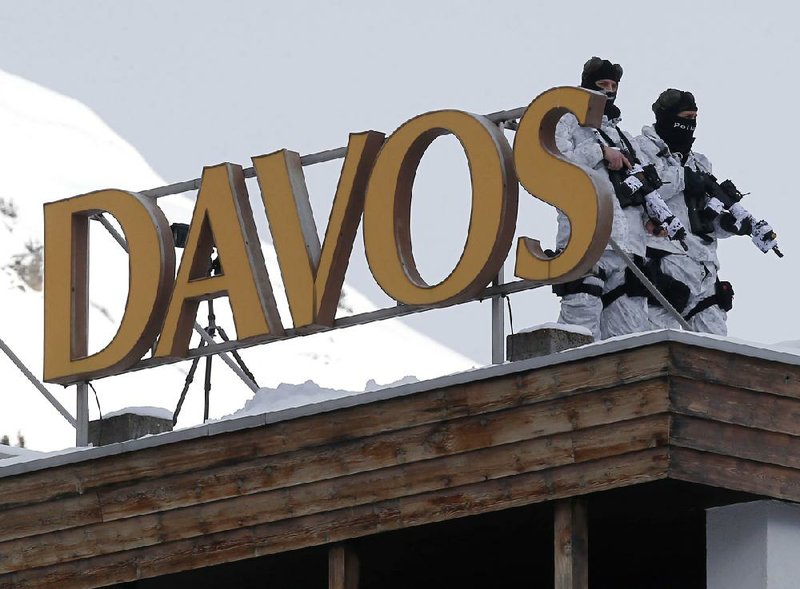DAVOS, Switzerland -- The United States has overtaken China as the No. 1 investment destination among chief executives around the world, a survey found Tuesday.
That's the first time the U.S. has topped the list since accounting and consulting firm PricewaterhouseCoopers first started asking the question five years ago.
Global investors appear encouraged by the U.S. economy's vital signs at a time when China's growth is slowing and executives are increasingly pessimistic over the global outlook.
"I think you are seeing a real movement to economies that offer some real degree of stability from a business investment point of view, and that's an interesting trend from what we've seen in the past," Dennis Nally, the firm's chairman, said as the world's business elite headed to the World Economic Forum in the Swiss resort of Davos.
The U.S. economy is considered the most important market for growth in 2015 because CEOs are more pessimistic about the global economy's prospects than they were a year ago. In its survey, PricewaterhouseCoopers found that 37 percent of executives polled think the outlook will improve over the next 12 months, down from 44 percent last year. Meanwhile, 17 percent think the outlook will improve, more than double last year's figure.
Nally blamed geopolitical tensions, big movements among currencies and the sharp fall in oil prices, among other factors, for the growing economic gloom.
"With all the things that are going on out there, CEOs are less confident about global growth than they were just 12 months ago," he said.
The International Monetary Fund on Tuesday downgraded its global growth forecasts for this year and next by 0.3 percentage points each to 3.5 percent and 3.7 percent, respectively. The IMF's downgrades came as China reported that its economic growth slowed to 7.4 percent last year, its weakest expansion since 1990.
The downward drift in sentiment identified by PricewaterhouseCoopers is not uniform around the world. Perhaps unsurprisingly, given the conflict in Ukraine last year, CEOs in Central and Eastern Europe are the most downbeat. Their counterparts in the Asia-Pacific region and the Middle East have a far more rosy outlook.
One country that is feeling the heat is Russia, where optimism has hit an all-time low after a year that's seen the country embroiled in the crisis in Ukraine and hit with sanctions from Western powers in response. Russia has also suffered from the sharp fall in oil prices -- its economy is hugely dependent on oil revenue -- and has seen its currency, the ruble, tank.
PricewaterhouseCoopers' survey was based on 1,322 interviews across 77 countries between Sept. 25 to Dec. 9.
Information for this article was contributed by Martin Benedyk of The Associated Press.
Business on 01/21/2015
